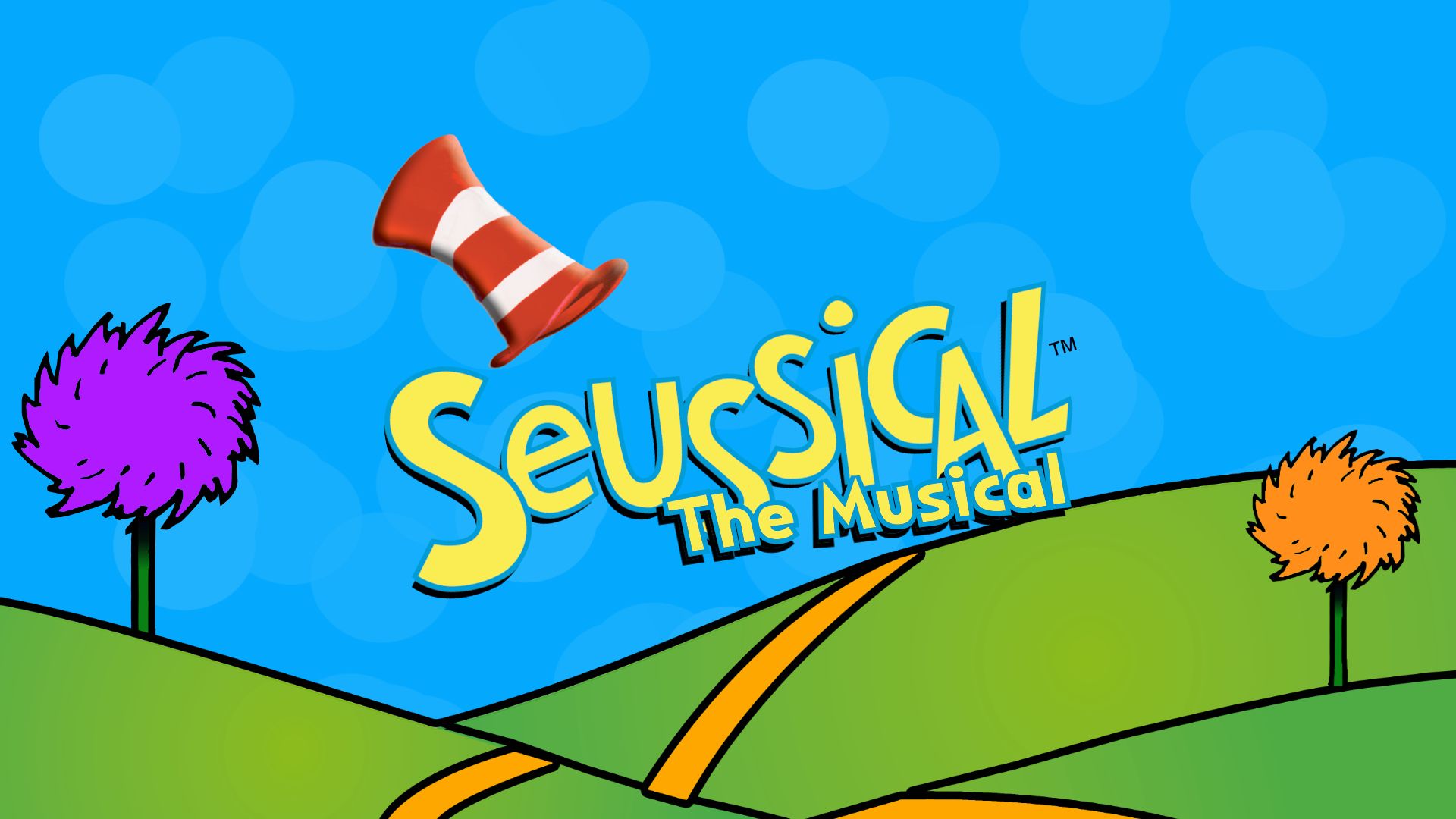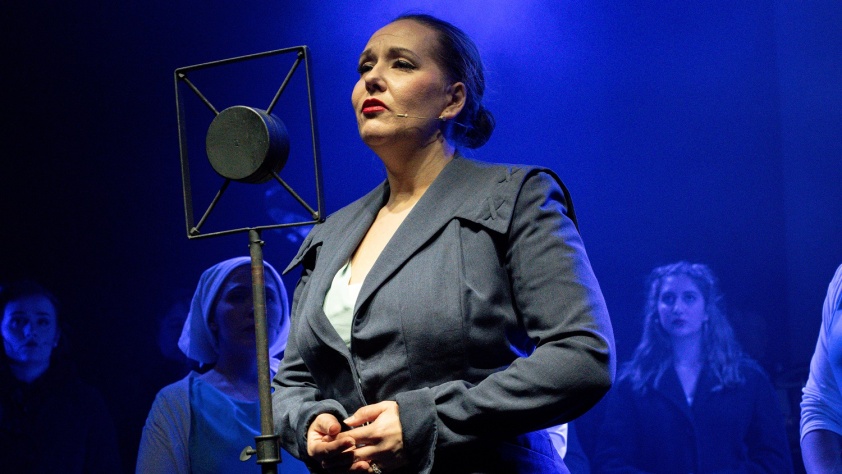“An unusual story will soon be unfurled” states the Cat in the Hat in the opening number of Seussical, which, in this case, is the story of a Broadway musical flop that soon became one of the most widely performed shows of recent years. Opening in New York in 2000, composing duo Lynn Ahrens and Stephen Flaherty (who wrote the score of musicals such as Ragtime and Anastasia) worked with Eric Idle (of Monty Python fame) to write a “Seuss” “musical” – a Seussical. The trio weaved together several of Dr. Seuss’s children’s stories into a madcap tale of Horton, JoJo, Gertrude McFuzz, and more, as brought together by the iconic Cat in the Hat. Although the show closed in less than a year, with reported losses of over $11 million, Seussical quickly became one of the most performed musicals in America, largely due to the popularity of the ‘Jr.’, ‘Kids’, and ‘Theatre for Young Audiences’ versions of the show. The musical’s universal themes of perseverance, friendship, kindness, inclusion, and more, are globally recognisable and exist in all four versions of Seussical that are available to perform, including the full-length two act version being performed by SOS Presents this summer. Seuss’s claim that “you can steer yourself any direction you choose” is just one of many quotes that resonate across generations and cultures, insisting that every individual can determine their own destiny.
When Seuss first published Horton Hears a Who! in 1954, a story about believing in yourself and promoting equality, American film, television, theatre, and more, were focused on bringing families together in the post-war era. The Broadway musical, in particular, was amid an era known as the American Golden Age (which spanned from the early 1940s to mid-60s). Shows including Oklahoma! (1943) and Guys and Dolls (1950) told stories of overcoming difference and adversity to generate a new community (though most of these musicals were set in other times and places). Scholar Raymond Knapp has described these musicals as mythologising America in a period in which the nation rebuilt itself with a new ethnic demographic drawn from other nations (as depicted in West Side Story [1957]). Dr. Seuss was therefore responding to the same context in writing Horton’s iconic catchphrase: “a person’s a person, no matter how small”. Challenging the great social divides in race, gender, sexuality, and age in baby-boomer America, Seuss projected the message that everyone deserves to be “noticed” – as Horton and Gertrude sing in ‘Notice Me, Horton’.
Jump forward to the new millennium and Seussical arrived on Broadway in September 2000 – “you’ve dragged me onto the stage” the Cat says. It was in this period that the notion of family entertainment was being redefined. For example, games consoles were no longer exclusively considered the pastime of children, particularly as the recent release of the PlayStation 2 in 2000 brought with it a wave of adult focused 18+ game releases. Likewise, the most successful children’s book (and then film) franchise in the world, Harry Potter, was as popular among adult readers as it was children (with J.K. Rowling’s fourth book released in July 2000). Seussical opened in a somewhat topsy turvy cultural setting where adults may well have been as engaged by the plight of the Whos as their children. While Seussical may not have captured the family market commercially, it was an early example of a rising trend of upbeat musical comedies on Broadway, with The Producers and Thoroughly Modern Millie opening that year. This trend was later exacerbated by the need for escapism following the 9/11 terrorist attacks in 2001, with Hairspray and Mamma Mia! being the runaway hits of 2002. Seussical therefore hit a cultural moment in 2000 as an optimistic piece of family entertainment and produced a work that has found most success in community and regional productions for over twenty years.
Although Seuss’s work may not have the same popularity as that of authors Julia Donaldson or David Walliams in Britain today, his stories – and Seussical with them – address universal themes that are as relevant to 2020s Britain as they were in the 1950s or in early 2000s America. The optimism of Seussical may well act as a relief from the continuing isolation of the COVID-19 pandemic or the resulting struggle of the cost-of-living crisis. Likewise, the themes of inclusion and acceptance speak to the ongoing struggle for LGBTQ+ and abortion rights, whether here or abroad. Seussical is a story of valuing others and promoting peace; a promise that no one should be “alone in the universe”, whoever they are or wherever they come from. Seuss’s messages have touched audiences, in some way, at every cultural moment in which they have been told, and this continues today. Times may be hard for some, but, as Horton claims, “all will be well” in Solla Sollew.
Seussical plays at the MAST Mayflower Studios, Southampton from 28 June – 1 July 2023.
Dr Adam Rush
Senior Lecturer in Musical Theatre
University of Winchester




